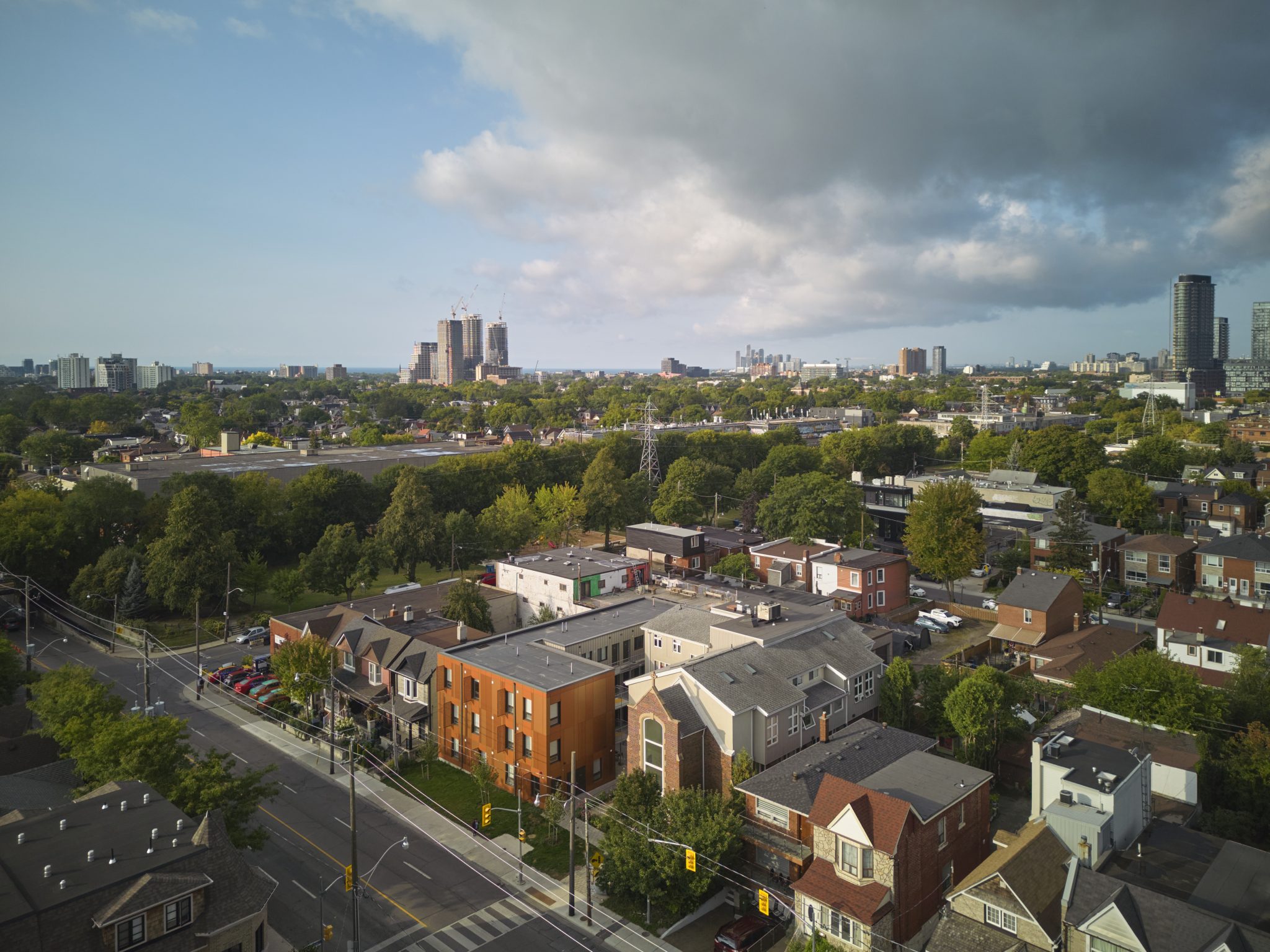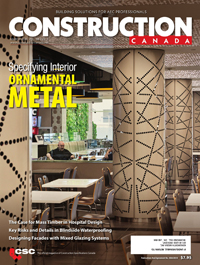Affordable mass timber housing, erected in just 17 days

Toronto’s 120 Ossington, a three-storey supportive housing development, demonstrates how mass timber can accelerate the delivery of affordable housing while meeting sustainability goals. Built using mass timber and panelized tilt-up construction, the project was erected in just 17 days, minimizing waste, neighbourhood disruption, and costs.
Each micro-unit features a kitchenette and private bathroom, giving residents autonomy and privacy, while shared community spaces foster connection. Architecturally, the building is a simple L-shaped infill form that aligns with the Low-Rise Urban Design Guidelines and reflects the materials and tones of the neighbouring church, while maintaining a contemporary identity. Colour, pattern, and integrated public art by Leo Krukowski animate the facade, ensuring the project contributes to the streetscape.
The structure uses three-ply cross-laminated timber sourced from Ontario forests, providing a renewable, low-carbon alternative to concrete and steel. Prefabrication improved precision and reduced waste, while the R-40 envelope and Passive House-rated slab system provide a high-performance thermal barrier. The building is modelled to perform 40 per cent better than the National Energy Code of Canada for Buildings (NECB) baseline, supported by a Building Automation System that monitors real-time performance against Thermal Energy Demand Intensity (TEDI) and Total Energy Use Intensity (TEUI) values.
Delivered for St. Clare’s Multifaith with Assembly Corp., McCallumSather is the architect of record, with design team contributions from William Neal and Nolan Cipriano. It has been recognized with the 2025 Toronto Urban Design Award and the Wood Design & Building Award.


